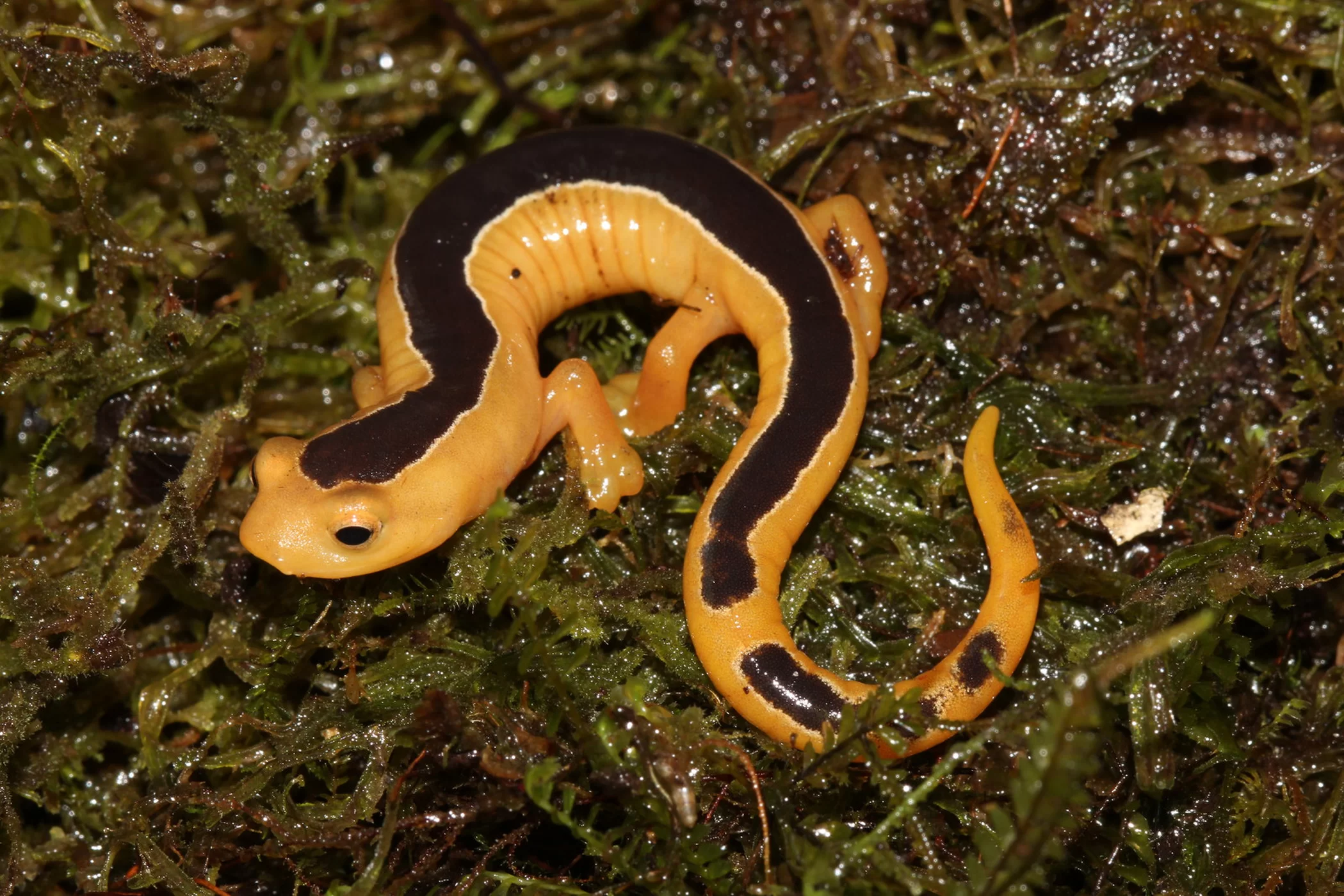The Jackson's Climbing Salamander (Bolitoglossa jacksoni), a brilliant yellow-and-black amphibian, was last seen in 1975 and feared extinct. But this month, a guard at the Finca San Isidro Amphibian Reserve (also called the Yal Unin Yul Witz Reserve) in the Cuchumatanes Mountains spotted a juvenile of the species while out on patrol. The guard, Ramos León, snapped a photo and sent it to Carlos Vasquez, a curator of herpetology at USAC University in Guatemala, who confirmed its identity. Vasquez himself had spent more than 3,000 hours hunting for the salamander since 2005, and trained León and his fellow guards on how to search for it.
The Jackson's Climbing Salamander is known as the "golden wonder" for its bright-yellow body, which is topped by a black streak running from its head to most of the way down its tail. It's named after its discoverer, Jeremy Jackson, who first identified it while exploring the Cuchumatanes with his friend Paul Elias, who was a college student at the time. They found three new species of salamander on that trip, including the long-limbed salamander (Nyctanolis pernix) and the Finca Chiblac Salamander (Bradytriton silus). Those species were found again on expeditions in 2009 and 2010, but the Jackson's salamander stayed missing. The nonprofit group Global Wildlife Conservation put the Jackson's salamander on its Top 25 "most wanted species" list as part of its Search for Lost Species initiative. The initiative, which launched in April, aims to seek out 25 species that have not been seen for years or decades but aren't confirmed extinct. Among them are the Wondiwoi tree kangaroo (Dendrolagus mayri), seen only once in 1928 in Indonesia, and the pink-headed duck (Rhodonessa caryophyllacea), last seen in Myanmar in 1949.





